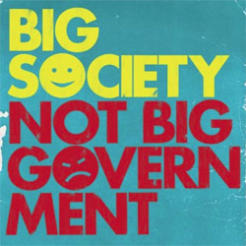The government's ambition to create a ‘Big Society’ is to be put under scrutiny with the launch of an audit into how effective its policies have been.
The first audit of Big Society, and the effectiveness of policies to shift power from government to civil society, has been launched and is expected to be published early in 2012.
Think tank Civil Exchange, research organisation Democratic Audit and DHA, a social policy communications group, will be conducting the audit after consulting with government, academics and others about how exactly to gauge the effectiveness or achievements of what has often been criticised as a woolly social policy.
The research, funded by Joseph Rowntree Foundation and Calouste Gulbenkian Foundation, will attempt to establish a ‘baseline’ against which subsequent shifts in behaviour and power can be monitored. The audit will also consider the effectiveness of initiatives by the last Labour government to bring about similar changes.
While the auditors hope the audit – subject to funding - will become an annual piece of research, only this week minister for civil society Nick Hurd warned that ‘Big Society’ will take ten or 20 years to achieve. Hurd’s comments followed a long period of infrequent use of the phrase ‘Big Society’ by coalition MPs.
Caroline Slocock, director of Civil Exchange, said that if it works, the Big Society idea could deliver very positive change.
“The Big Society’s stated goals, if delivered, could promote a genuine shift of power from government to civil society,” she said. “The aim of the audit is to look beyond the sometimes heated political debate to discover what is happening in practice, capturing wherever possible the impact on different communities and groups.”
Civil Exchange and DHA are also running the secretariat for the Independence Panel that is examining the state of the sector's independence from government and other stakeholders.









